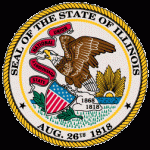Data-driven, cross-agency approach yields win-win for patients, taxpayers
CHICAGO — Gov. Bruce Rauner’s Health Care Fraud Elimination Task Force reported that the State has saved, prevented or recovered approximately $450 million in fraudulent or wasteful Medicaid spending in fiscal years 2016 and 2017.
 In the Department of Healthcare and Family Services (DHFS), which manages the State’s $20 billion Medicaid program, the Office of Inspector General (OIG) saved or recouped an estimated $195 million in FY17. Last fiscal year, FY16, HFS-OIG reported $220.2 million in similar savings.
In the Department of Healthcare and Family Services (DHFS), which manages the State’s $20 billion Medicaid program, the Office of Inspector General (OIG) saved or recouped an estimated $195 million in FY17. Last fiscal year, FY16, HFS-OIG reported $220.2 million in similar savings.
In addition, in FY16 the Illinois State Police Medicaid Fraud Control Unit reported 46 fraud convictions and $35.4 million in recoveries through criminal prosecutions, civil actions and administrative referrals.
“Medicaid fraud is a multibillion-dollar industry in the U.S.,” Rauner said. “Cheating through overpayments or improper billing may seem like a victimless crime to some, but every dollar that is diverted from our health programs is one that could have been spent on a needy beneficiary. That’s a crime our administration won’t tolerate.”
The governor’s Health Care Fraud Elimination Task Force was created in April of 2016. Under the leadership of Executive Inspector General Maggie Hickey, its purpose is to develop and coordinate a comprehensive plan to prevent and eliminate health care fraud, waste and abuse by deploying a cross-agency, data-driven approach.
“The collaboration among agencies for this effort has been outstanding,” Hickey said. “When agencies of the government come together to share resources and expertise, the outcomes can be extraordinary. We have more work to do, of course, but we have now set a standard for intergovernmental cooperation on fraud prevention in our health systems that will continue to produce results.”
The Illinois Department of Innovation and Technology (DoIT) now has agreements with 21 state agencies to use its system to review and analyze data across the board rather than viewing silos of information for individual programs or agencies.
The data sharing and resulting collaborations have led to outcomes like those released today by the Task Force in its October 2017 Interim Report.
“Identifying and eliminating fraud and abuse in the health care system is not just a matter of fiscal integrity and spending efficiency,” the governor said. “This is a matter of fairness and social justice for all Illinoisans.”
Rauner added that much remains to be done; the work of the task force is continuing.
“By using modern technology to collect data and improve operations, we can deliver better health care and help keep a lid on advancing costs,” he said. “It is a win-win for patients and taxpayers.”
Other members of the task force include:
From the Governor’s Office, Deputy Gov. Trey Childress; Deputy General Counsel and Chief Compliance Officer Jill Hutchison; Special Counsel and Health Care Policy Advisor Christopher Kantas.
Acting Directors Jean Bohnhoff at the Department on Aging, Michael Hoffman at CMS, Felicia Norwood at DHFS, James Dimas at DHS and Kirk Lonbom at the Department of Innovation Technology.
Directors Jennifer Hammer at the Illinois Department of Insurance and Capt. Brian Ley at the Illinois State Police Medicaid Fraud Control Unit. Chairman Joann Fratianni at the Workers’ Compensation Commission and Inspector General Bradley Hart at DHFS.


Speak Your Mind
You must be logged in to post a comment.